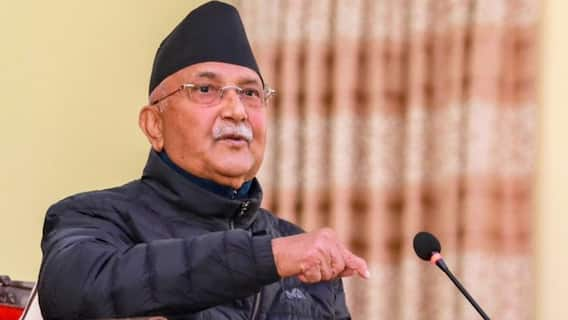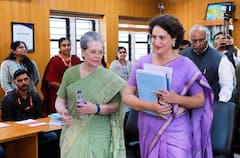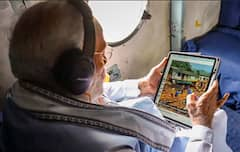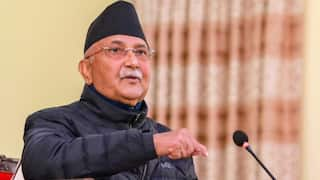Nipah In Kerala: Health Minister Veena George Confirms 14-Year-Old Boy Infected In Malappuram
Kerala Health Minister Veena George's confirmation comes as a boy from Malappuram, receiving treatment in a private hospital in Kozhikode, exhibited symptoms indicative of Nipah virus infection.

Kerala Health Minister Veena George announced on Saturday that a 14-year-old boy from Malappuram district has tested positive for the Nipah virus. The confirmation came from the Pune National Institute of Virology (NIV), with the child currently receiving treatment at a private hospital.
"Given the confirmation of Nipah in a 14-year-old resident of Malappuram undergoing treatment, we can confront this as a united front, as we have in previous years. Do not hesitate to take preventive measures. Avoid unnecessary hospital visits. Stay vigilant," the Kerala Health Minister posted on Facebook.
Minister George stated that the boy will soon be transferred to the government medical college in Kozhikode. "We have commenced contact tracing immediately," George told the media, as per news agency PTI. She added that high-risk contacts have been isolated and their samples are being tested.
The child, who is reported to be on a ventilator, was initially treated at a private clinic on May 12 and later admitted to several other private hospitals before being moved to Kozhikode. A 24-hour control room with a call centre has been established in Malappuram to manage the situation, PTI reported.
The epicentre of the infection is identified as Pandikkad, with precautionary measures already underway. George urged residents in the area and nearby hospitals to wear masks in public and to refrain from visiting patients. Additionally, a three-kilometre radius around Pandikkad will be closely monitored, and restrictions will be enforced.
The state government has procured a monoclonal antibody from Australia, which will arrive on Sunday. Thirty isolation rooms and a six-bed ICU have been set up at the Manjeri Medical College, and all contacts of the infected boy have been isolated, PTI's report stated.
Despite receiving preliminary positive results from state laboratories, the Health Department awaited final confirmation from Pune NIV before announcing the outbreak. Measures in line with Nipah protocols, including isolating close contacts and tracing potential infection routes, were already in effect.
Minister George also noted that a mobile lab from Pune NIV, similar to one used in a previous outbreak, will be provided to assist in managing the situation.
A statement from the Health Minister's office indicated that the state has already initiated steps in accordance with the Nipah protocol since Saturday morning. The actions are being coordinated based on the Standard Operating Procedure (SOP) established by the government for Nipah prevention, it said, as reported by PTI.
Minister Veena George is expected to arrive in Malappuram to personally oversee and lead the Nipah prevention activities. A high-level meeting chaired by her included participation from several senior officials, including the health secretary, National Health Mission state director, district collectors of Kozhikode and Malappuram, and the health director.
Kerala has faced Nipah outbreaks on four previous occasions, with reported cases in Kozhikode district in 2018, 2021, and 2023, and in Ernakulam district in 2019. The presence of Nipah virus antibodies has been detected in bats across several districts, including Kozhikode, Wayanad, Idukki, Malappuram, and Ernakulam.
What Is Nipah Virus?
Nipah Virus is a zoonotic virus meaning it can be transmitted from animals to humans. It can also spread directly between people or through contaminated food. People can become infected through contact with infected bats and consuming food products contaminated with urine or saliva from infected bats.
The incubation period ranges from 4 to 14 days but can extend up to 45 days in some cases. Initial symptoms include fever, headache, drowsiness, respiratory symptoms, and muscle pain (myalgia).
The case fatality rate is estimated to be between 40% to 75%, varying by outbreak and regional healthcare capabilities.

Trending News
Top Headlines











































